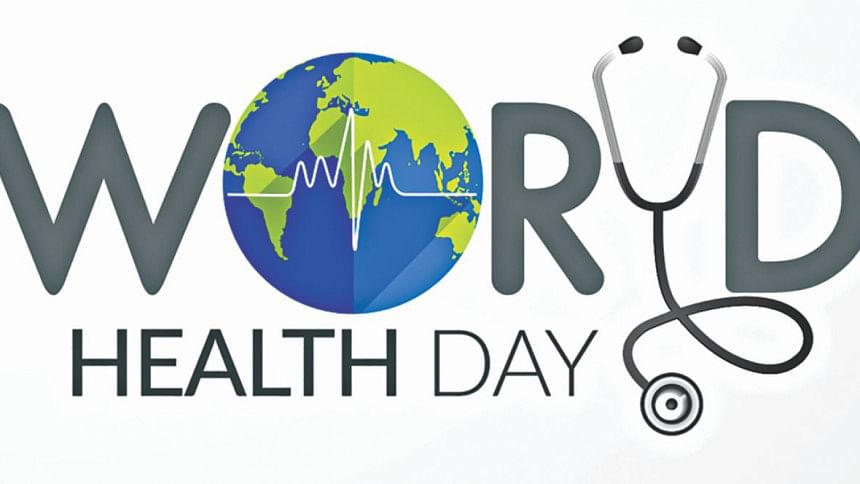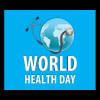Health for all: everyone, everywhere

Key to achieving universal health coverage (UHC) is ensuring that everyone can obtain the care they need, when they need it, right in the heart of the community. Progress is being made in countries in all regions of the world. But millions of people still have no access at all to health care. Millions more are forced to choose between health care and other daily expenses such as food, clothing and even a home. Each year World Health Day is being celebrated on 7 April.
World Health Day is a chance to celebrate health and remind world leaders that everyone should be able to access the health care they need, when and where they need it. Advocacy events will be held around the world to fuel the momentum of the #HealthForAll movement and to highlight the goal of achieving a fairer, healthier world — in which no one is left behind. The focus will be on equity and solidarity — on raising the bar for health for everyone, everywhere by addressing gaps in services, and leaving no one behind. The theme for World Health Day this year is: Health for all — everyone, everywhere.
Why universal health coverage and primary health care?
UHC means that all people have access to the quality health services they need, when and where they need them, without financial hardship. This is possible and it starts with strong primary health care.
Primary health care is a whole-of-society approach to health and wellbeing centred on the needs and preferences of individuals, families and communities. To make health for all a reality, governments need to invest in quality, accessible primary health care. Health workers need to care and advocate for patients and educate them on how to get and stay healthy. Individuals and communities need to be empowered to take care of their own health.
Many countries are already making progress towards UHC. All countries can take actions to move more rapidly towards it, or to maintain the gains they have already made.
In countries where health services have traditionally been accessible and affordable, governments are finding it increasingly difficult to respond to the ever-growing health needs of the populations and the increasing costs of health services.
Moving towards UHC requires strengthening health systems in all countries. Robust financing structures are key. When people have to pay most of the cost for health services out of their own pockets, the poor are often unable to obtain many of the services they need, and even the rich may be exposed to financial hardship in the event of severe or long-term illness.
Pooling funds from compulsory funding sources (such as mandatory insurance contributions) can spread the financial risks of illness across a population.
Primary health care is the most efficient and cost effective way to achieve universal health coverage around the world. To meet the health workforce requirements of the Sustainable Development Goals and UHC targets, over 18 million additional health workers are needed by 2030.
Gaps in the supply of and demand for health workers are concentrated in low- and lower-middle-income countries. The growing demand for health workers is projected to add an estimated 40 million health sector jobs to the global economy by 2030.
Investments are needed from both public and private sectors in health worker education, as well as in the creation and filling of funded positions in the health sector and the health economy.
The Government of Bangladesh is committed to achieve universal health coverage by strengthening the accessibility of primary health care for the citizens of Bangladesh. As part of the initiative, a 'National Protocol for Management of Diabetes and Hypertension' has been developed and is being rolled out across the country.
The chief of the expert panel for the protocol and Secretary General of Association of Physicians of Bangladesh (APB) Dr. S. M. Mostafa Zaman stressed on the need of public awareness regarding the primary health issues and how to prevent this. He also underscored the media's role in spreading the messages.

 For all latest news, follow The Daily Star's Google News channel.
For all latest news, follow The Daily Star's Google News channel. 







Comments